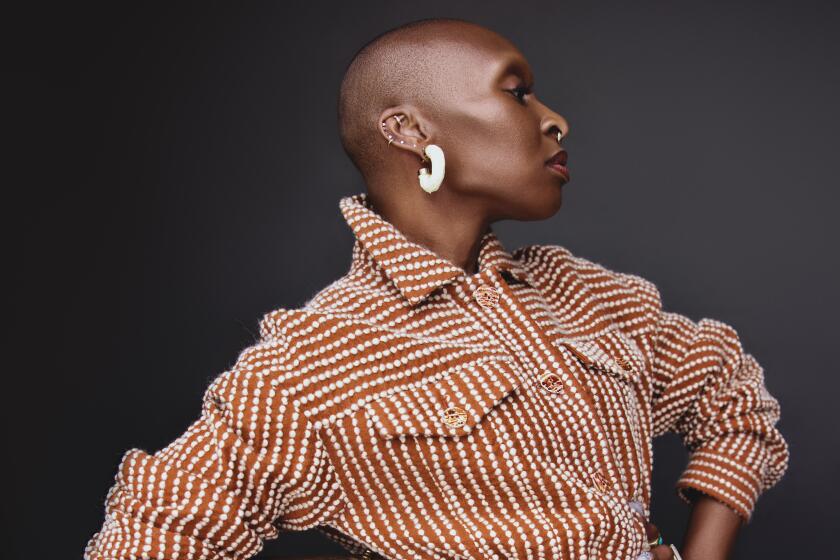TV REVIEW : A Welcome Production of Strauss’ Final Opera
- Share via
“Great Performances’ ” offering of Richard Strauss’ “Capriccio” has to be welcome, if only for the rare opportunity it affords opera-watchers to see the composer’s final operatic essay. (It can be seen tonight at 9 on KCET Channel 28 and KPBS Channel 15, and at 8 on KVCR Channel 24.)
A memento of the 1990 revival of the Salzburg Festival production created in 1985, it captures not only the philosophical core of Strauss’ and librettist Clemens Krauss’ “Conversation Piece for Music in One Act”--the subject is the age-old dichotomy-reconciliation of poetry and music--but also a theatrically cherishable, visually opulent performance.
The three-story unit set consists of glass-and-metal, Art Moderne, see-through walls separating two spacious rooms. The foreground is dominated by two metal sculptures, probably representing poetry and music. The production, mostly in blacks and whites, also consists of 1920s-era, high-style costumes--at the beginning.
Gradually, with each re-entrance of the cast members, modern clothes are replaced by 18th-Century duds. What it means is left to our imaginations. In any case, the set and costumes are the handiwork of Andreas Reinhardt.
Krauss’ and Strauss’ all-important, famously talky text--with translation and English subtitles by Sonya Haddad--is well-served and clearly articulated by a handsome cast headed by Anna Tomowa-Sintow (Madeleine), Wolfgang Schone (Count), Eberhard Buchner (Flamand), Andreas Schmidt (Olivier) and Theo Adam (La Roche).
With the exception of the apparently scrawny-voiced Buchner, all the cast, also including Edith Schmid-Lienbacher and Californian Jonathan Welch as the very amusing Italian singers, meet high Straussian standards for vocalism.
Tomowa-Sintow in particular matches her gorgeous appearance with sounds of wondrous evenness and radiance. And Adam dominates the Quarrel Scene with tremendous vocal and histrionic authority.
But the strongest credit may belong to the Straussian veteran Horst Stein, conducting the Vienna Philharmonic in a pointed and tightly paced performance.
More to Read
The biggest entertainment stories
Get our big stories about Hollywood, film, television, music, arts, culture and more right in your inbox as soon as they publish.
You may occasionally receive promotional content from the Los Angeles Times.










